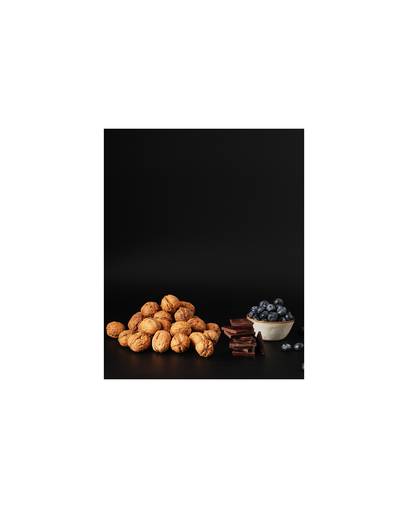Kayla Barnes is a global longevity leader and brain health coach with a background in nutrition and a passion for upgrading both the brain and biology through biohacking. Barnes takes a functional approach to brain health, utilising the power of food to impact cognitive function and long-term wellbeing. Here, the US-based expert guides us on how to biohack our brains through food.
When it comes to brain health and longevity, what does ‘biohacking’ mean to you, and how does it apply here?
“Brain health can be looked at in two ways. One is the physical health of your brain or the ‘hardware’, and two is the ‘software’ of your brain or your mindset. Biohacking is the practice of changing your internal and external environment to benefit your health. This can range from simple and free practices like cold showers, meditation and grounding to more advanced techniques like blood work, microbiome testing and red light therapy. Biohacking also means taking your health into your own hands. This is essential to optimal health and better brain health because our current way of living, food supply, and general habits often don’t promote optimal health. Health is also bio-individual, so what may work for your friends, family, or the masses may not be best for your biology. Biohacking supports your unique requirements to achieve vibrant health, optimal cognition, and increased health and lifespan.”
How do you use food as a biohacking tool to improve your brain health?
“Food is an essential component of a healthy brain. The brain is made from the foods we feed it, it is only two to three per cent of our body weight but uses up to 30% of our caloric intake. I adhere to a brain health diet consisting of zero processed foods, zero refined or added sugars, healthy fats like avocado and organic extra virgin olive oil (EVOO), sprouted nuts like walnuts, wild-caught fish for the EPA and DHA (omega-3 fatty acids) that the brain loves, organic and dark leafy greens, turmeric which is a potent anti-inflammatory, a small piece of extra dark chocolate (80% cacao or more) and organic blueberries daily. Blueberries and dark chocolate are brain superfoods loaded with antioxidants. Grass-fed and finished meats are also a part of my diet, adequate protein is necessary to support your neurotransmitters. I finish my last meal at least three hours before bed. If you are busy digesting you will stay out of the deepest stages of sleep.
Ideally, nutrition should be personalised, but overall we want to keep our diet anti-inflammatory (think less sugar and more healthy fats) to promote better cognitive function and maintain stable blood sugar levels throughout the day to reduce crashes and brain fog.”


Which foods and diet choices are essential to brain health?
“It’s critical to eat clean, wholefoods. Dump the junk and processed foods and reduce or eliminate sugar, which is a cause of inflammation.
Leafy greens such as spinach, collards, and broccoli are rich in brain-healthy nutrients like vitamin K, lutein, folate, and beta-carotene. Research suggests these plant-based foods may help slow cognitive decline. Look for organic or locally grown without herbicides like Glyphosate.
Wild-caught fish. Fatty fish are abundant sources of omega-3 fatty acids, healthy unsaturated fats that have been linked to lower blood levels of beta-amyloid, the protein that forms damaging clumps in the brains of people with Alzheimer’s disease. Try to eat fish at least twice a week or supplement with krill or fish oil. 1000 MG of EPA from fish or cod krill oil a day is recommended for optimal brain health.
Look for wild-caught. If consuming tuna from a can, no BPA. Sardines and smaller fish are an incredible option as they contain fewer heavy metals. Caviar is also an incredibly nutrient-dense option.
Organic nuts and seeds are excellent sources of protein and healthy fats. Walnuts are high in a type of omega-3 fatty acid called alpha-linolenic acid (ALA), which helps lower blood pressure and protects arteries - beneficial for both the heart and brain, it may also improve memory. Choose sprouted and organic.
Organic healthy fats such as EVOO are loaded with anti-aging nutrients omega-3s and vitamin E. EVOO is also rich in monounsaturated fat, beneficial for the heart and the brain. Avoid inflammatory oils like soybean, canola, sunflower, safflower and rapeseed. These oils are not beneficial to brain health.
Cacao is rich in theobromine, a powerful antioxidant known to support cellular ageing and reduce the risk of heart disease and insulin resistance. Eat dark chocolate with at least 80% cacao or higher.
Organic berries contain flavonoids, the natural plant pigments that give berries their brilliant hues. They also help improve memory, research shows. In a 2012 study published in Annals of Neurology, researchers found that women who consumed two or more servings of strawberries and blueberries each week delayed memory decline by up to two-and-a-half years.
“...hold off [on coffee] for 90 to 120 minutes after waking, to allow your natural cortisol levels to rise without interruption.”
What are your thoughts on coffee? Is there a healthier option we could be choosing to start our day or boost energy and focus?
“Coffee can be a brain-boosting superfood because it is loaded with antioxidants and polyphenols, but it is essential to choose a high-quality organic brand. Coffee is one of the most heavily pesticide crops in the world, so choosing organic and lab-tested will ensure it is free from all glyphosate, moulds, and mycotoxins.
I do have a few tips on coffee consumption. [Firstly] try and hold off for 90 to 120 minutes after waking. This allows your natural cortisol levels to rise without interruption. Our genetics play a role in how well we tolerate and how fast we metabolise caffeine. It’s best to keep your coffee consumption to two cups daily, as too much caffeine can reduce blood flow to the brain. Personally, I like to have one bulletproof coffee daily and sometimes one cup of black coffee. Bulletproof combines grass-fed butter or ghee and MCT oil. This is satiating without breaking a fast, and our brains love MCT oil as it boosts ketones in the brain. Green tea and matcha are also great options for those who don’t do well with caffeine.”
—

